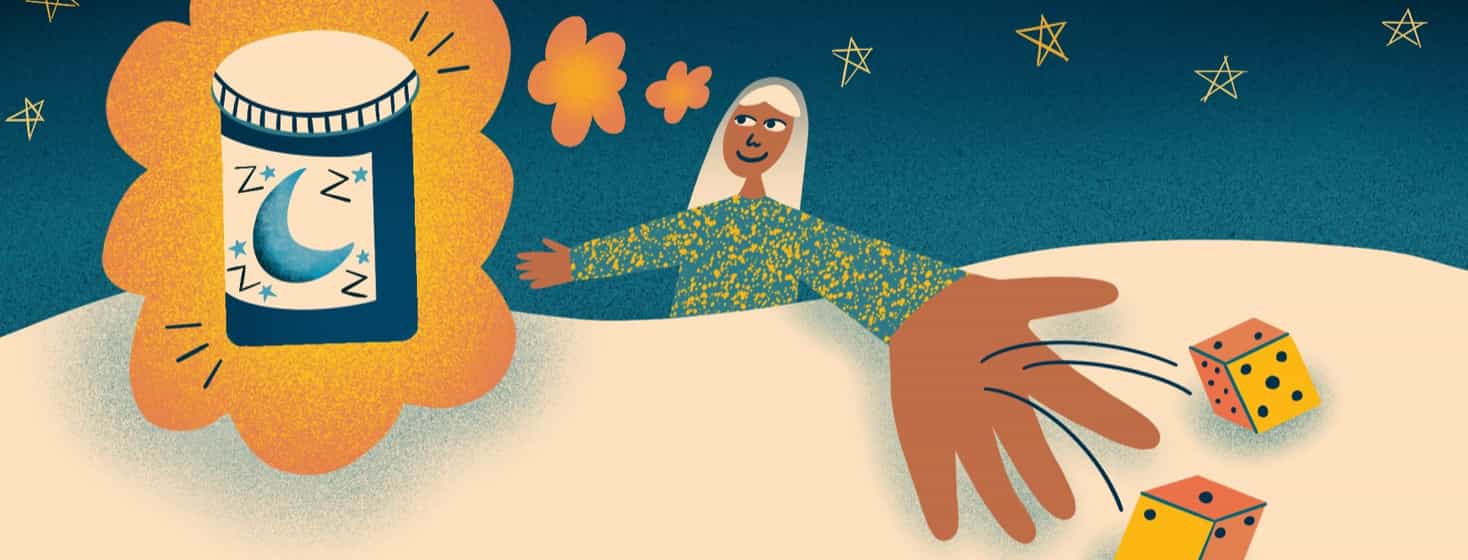Melatonin: What's This About a Vampire Hormone?
Melatonin is a curious thing. Over the last few years, I have tried it occasionally when I had trouble sleeping with mixed results. Every time I took it, I did so with high hopes for a solid night’s sleep. That, unfortunately, is not my melatonin story.
Some nights, melatonin eases me into a peaceful slumber, and I manage to get between 5 to 7 hours of sleep. Other nights after taking melatonin, I lie wide awake and never doze off. There have been some nights when I find myself trying to doze off for hours while my mind races, with strange disconnected thoughts. I don’t know what to think about melatonin.
I am generally not a fan of taking medication to sleep. I know it’s necessary in many cases, but I try hard to find alternatives to medications, over-the-counter or prescription.
The more I think about melatonin, the more questions I have. You may have been wondering about this little sleep aid yourself. After researching my own questions, this is what I found:
What exactly is melatonin?
I assumed melatonin was a completely manufactured substance – but I was wrong. I was surprised to find that melatonin is a hormone whose production and release revolves around the time of day. This hormone picks up on daylight and darkness – kind of amazing when you think about it.1
In fact, due to the fact that the production of melatonin increases with the absence of daylight, it has become known in some circles as the vampire hormone. When we grab a bottle at the pharmacy or over the counter at Walmart, we are buying melatonin as a manufactured supplement.
Could I become dependent on melatonin?
This is a big one. One of the main reasons I avoid taking medications, especially to deal with my insomnia, is the risk that my body will actually grow to need it. Answering this question is a little tricky.
While melatonin, by and large, behaves like a drug, it is difficult to dose. I suspected that my body was growing accustomed to melatonin and that might be the reason it was, at times, not as effective.
Are my headaches a result of melatonin?
It seemed like a stretch because melatonin feels so benign – a tiny little supplement after all. Could it cause lingering headaches? Was I treating insomnia but paying the price the next day? Turns out I am definitely not alone. One of the most commonly reported side effects of melatonin is headaches.2
In fact, it topped virtually every list I came across. I don’t know if the iffiness of melatonin’s effectiveness is worth the discomfort of the headache that, for me, inevitably follows.
Melatonin is not the only option for insomnia
My daughter has recently asked what she could use to help her sleep. Needless to say, as someone who suffers from insomnia, I am not the best source of advice. Melatonin was one of the first things she mentioned.
As a mother, I wanted nothing more than to help her get some rest. As someone who hasn’t had the best experience with melatonin lately, I had to give her the full breakdown along with some other options that don’t involve taking over-the-counter medications. Melatonin is one option, but it’s definitely not our only one.

Join the conversation